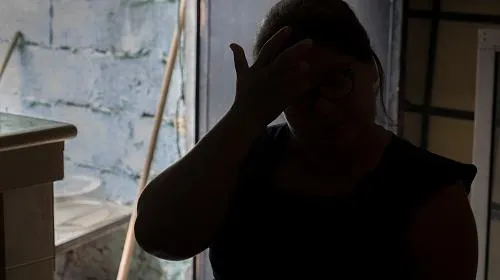ATLANTA (March 26, 2018) — Violence against women (VAW) costs society upwards of 2 percent of global GDP, and a CARE report released today demonstrates how that $1.5 trillion loss hits low-, middle- and high-income countries alike.
“First and foremost, violence against women is a fundamental human rights violation that demands condemnation and action,” said Sofia Sprechmann, program director for the global poverty-fighting organization CARE International. “While all costs cannot be easily measured, an understanding of the economic costs to society provides additional perspectives as to why governments, donors and the private sector need to come together to address this pandemic.”
The report, “Counting the Cost: The price society pays for violence against women,” draws on studies from 13 different areas of the world, including the United States, and presents the economic costs of violence against women in relation to national economies, such as a 2.1 percent loss in Bangladesh ($2.3 billion) and a 1.51 percent loss in the United States ($273.4 billion). Three of the report’s case studies were conducted by CARE, which examined intimate partner violence in Bangladesh and Zambia and workplace sexual harassment in Cambodia.
While survivors bear the highest costs, nations, states and local municipalities pay a hefty price in service delivery, and the private sector pays in reduced productivity from employees. Money and lives are, therefore, saved when laws and proper investments address violence prevention, education, behavioural, legal and regulatory solutions across sectors.
When it comes to violence against women, the resulting loss of GDP exceeds the cost of prevention and intervention. In Uganda, for example, implementing the Domestic Violence Act of 2010 for both prevention and response cost more than US$ 8 million over three years. On the other hand, the cost of addressing the violence after it occurred exceeded an estimated S$30 million in a single year.
“These figures — both the billions of U.S. dollars that violence costs and the more than 1 billion women likely to suffer that violence in their lifetime — point to one inescapable conclusion: violence against women has a devastating and lasting impact on all of us and demands that we pledge support and take urgent action,” said Jayanthi Kuru-Utumpala, one of the co-authors of the report from Chrysalis, Sri Lanka, an affiliate member of the CARE International network.
“Violence and harassment against women are among the abuses that leave women vulnerable at avoidable cost to them, their families and whole economies,” said Milkah Kihunah, CARE’s deputy director for Global Advocacy. “In the case of workplace protection, more than one-third of the world’s countries have no laws prohibiting sexual harassment at work. This is why CARE encourages more governments and employers to join the many other governments that support the adoption of an International Labour Organisation (ILO) Convention on ending violence and sexual harassment in the world of work as one critical step.”
The report recommends actions to prevent and respond to violence against women, including more resources, support for women’s and grassroots movements, and strong laws. CARE calls on governments, businesses, trade unions and others to support the establishment of an ILO Convention to end harassment and violence in the world of work. Given the legal gaps in how national laws and current international standards address this issue, a binding ILO Convention would provide a critical guidepost and address the challenges that women and marginalised groups face in realizing the right to work free from violence and harassment.
About CARE
Founded in 1945 with the creation of the CARE Package®, CARE is a leading humanitarian organization fighting global poverty. CARE places special focus on working alongside women and girls because, equipped with the proper resources, they have the power to lift whole families and entire communities out of poverty. That’s why women and girls are at the heart of CARE’s community-based efforts to improve education and health, create economic opportunity, respond to emergencies and confront hunger. Last year CARE worked in 93 countries and reached 63 million people around the world. Learn more at care.org.
Media Contacts
Brian Feagans, bfeagans@care.org; 404-979-9453
Nicole Harris, nharris@care.org, 404-735-0871
Nicole Ellis, nicole.ellis@care.org, 202-595-2828

